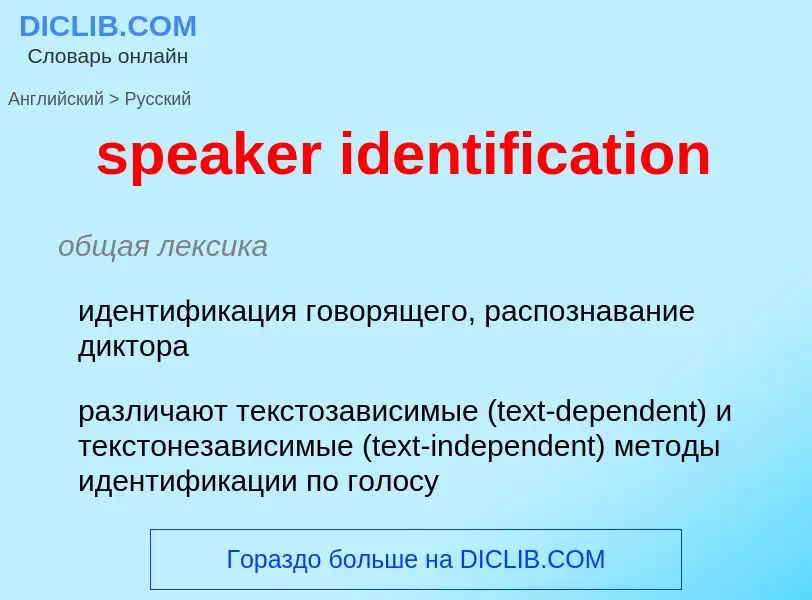Μετάφραση και ανάλυση λέξεων από την τεχνητή νοημοσύνη ChatGPT
Σε αυτήν τη σελίδα μπορείτε να λάβετε μια λεπτομερή ανάλυση μιας λέξης ή μιας φράσης, η οποία δημιουργήθηκε χρησιμοποιώντας το ChatGPT, την καλύτερη τεχνολογία τεχνητής νοημοσύνης μέχρι σήμερα:
- πώς χρησιμοποιείται η λέξη
- συχνότητα χρήσης
- χρησιμοποιείται πιο συχνά στον προφορικό ή γραπτό λόγο
- επιλογές μετάφρασης λέξεων
- παραδείγματα χρήσης (πολλές φράσεις με μετάφραση)
- ετυμολογία
speaker identification - translation to Αγγλικά
общая лексика
идентификация говорящего, распознавание диктора
различают текстозависимые (text-dependent) и текстонезависимые (text-independent) методы идентификации по голосу
синоним
Смотрите также
Смотрите также
Ορισμός
Βικιπαίδεια
Speaker recognition is the identification of a person from characteristics of voices. It is used to answer the question "Who is speaking?" The term voice recognition can refer to speaker recognition or speech recognition. Speaker verification (also called speaker authentication) contrasts with identification, and speaker recognition differs from speaker diarisation (recognizing when the same speaker is speaking).
Recognizing the speaker can simplify the task of translating speech in systems that have been trained on specific voices or it can be used to authenticate or verify the identity of a speaker as part of a security process. Speaker recognition has a history dating back some four decades as of 2019 and uses the acoustic features of speech that have been found to differ between individuals. These acoustic patterns reflect both anatomy and learned behavioral patterns.

